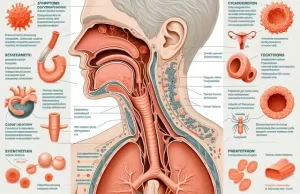Vaccine Trials to Prevent Fentanyl and Heroin Overdoses Set to Begin
- Chinese Food Products Dominate Korean Tables Amid Safety Concerns
- Early Detection of Hypopharyngeal Cancer Possible with Saliva Diagnosis
- EB Virus Could Be Infected by Kiss: A Hidden Threat Linked to Cancer
- The Silent Threat: How Gas Stoves Pollute Our Homes and Impact Health
- Paternal Microbiome Perturbations Impact Offspring Fitness
- New Report Casts Doubt on Maradona’s Cause of Death and Rocks Manslaughter Case
- AstraZeneca Admits for the First Time that its COVID Vaccine Has Blood Clot Side Effects
- Was COVID virus leaked from the Chinese WIV lab?
- HIV Cure Research: New Study Links Viral DNA Levels to Spontaneous Control
- FDA has mandated a top-level black box warning for all marketed CAR-T therapies
- Can people with high blood pressure eat peanuts?
- What is the difference between dopamine and dobutamine?
- How long can the patient live after heart stent surgery?
Vaccine Trials to Prevent Fentanyl and Heroin Overdoses Set to Begin
Researchers are gearing up for human clinical trials in early 2024 to test the safety and effectiveness of a vaccine designed to prevent overdoses of heroin and fentanyl.
While there’s a long road ahead, if approved, this vaccine could revolutionize the treatment of opioid addiction and reduce the death toll from drug overdoses.

Opioid drugs, particularly synthetic opioids, are a leading cause of drug overdose deaths. The continued availability of drugs like heroin and fentanyl exacerbates the opioid dependency problem, putting users at risk of fatal overdoses. These substances are also notoriously difficult to quit.
Drug use and related overdoses not only burden families who lose loved ones but also impose a significant economic toll. In 2017, the estimated cost of opioid use disorders and fatal opioid overdoses in the United States was a staggering $1.02 trillion.
While it’s unlikely that drugs like heroin and fentanyl will disappear from the streets entirely, they may well be replaced by other equally destructive substances. However, researchers at the University of Montana (UM) are poised to test the next best solution to combat the opioid epidemic: vaccines designed to prevent fentanyl and heroin overdoses and assist in treating opioid dependency.
The development of these vaccines began with Dr. Marco Pravetoni, a professor of psychiatry and behavioral sciences at the University of Washington.
“Our vaccine aims to neutralize target opioids while avoiding the use of critical medications like methadone, buprenorphine, naltrexone, and naloxone, which are used to treat opioid addiction and reverse overdoses,” said Pravetoni.
Pravetoni’s team is responsible for developing haptens, small molecules that, when bound to larger carriers like proteins, trigger the production of antibodies against target opioids.
During the development of these novel anti-opioid vaccines, Pravetoni collaborated with UM researchers providing adjuvants, ingredients that enhance vaccine efficacy by boosting the immune response. In this case, the adjuvant is a patented substance called INI-4001.
“Our adjuvant can improve vaccine responses, providing stronger and longer-lasting immunity,” said Jay Evans, head of UM’s Translational Medicine Center and co-founder of Inimmune, a company partnering to scale up vaccine components production.
The National Institutes of Health (NIH) is providing full funding to UM for the first-phase clinical trials of two opioid vaccines as part of its “Helping to End Addiction Long-term” (HEAL) initiative.
“Human clinical trials will include drug challenges to assess the safety and effectiveness of the vaccines in early clinical development,” Evans said. “We’ll also be tracking patients to evaluate the duration of anti-opioid antibodies.”
To support the transition to human trials, the vaccines have undergone testing in animal models. The results of preclinical trials for the fentanyl vaccine were recently published in the journal “NPJ Vaccines,” with results from the heroin vaccine trials forthcoming.
Researchers anticipate completing new drug research applications submitted to the U.S. Food and Drug Administration (FDA) later this year.
“We anticipate initiating human trials in early 2024. The first vaccine will target heroin, followed shortly by the first-phase clinical trials for the fentanyl vaccine. Once we establish safety and effectiveness in these initial trials, we hope to advance multi-valent combination vaccines against both heroin and fentanyl,” Evans added.
Phase 1 trials will take place at Columbia University in New York, with doses incrementally increasing.
“We start with the lowest dose, which may not be effective. The focus of Phase 1 clinical trials is safety. After the first dose group is completed, a data safety monitoring board will review the data, and if the vaccine is safe, approval will be granted for testing at the next dose level. This process takes time until a safe and effective dose level is reached,” Evans explained.
Subsequent Phase 2 trials will determine the required effective dose and the time between two doses. Phase 3, a crucial efficacy study involving a larger number of participants, will ultimately determine FDA approval based on whether the benefits of the drug outweigh potential risks.
“Obtaining final approval takes a considerable amount of time—several years. Based on the efficacy data we’ve seen in preclinical studies and the safety demonstrated in animal models, we are hopeful for the success of these vaccines. But there’s still a lot of work ahead,” Evans concluded.
Vaccine Trials to Prevent Fentanyl and Heroin Overdoses Set to Begin
(source:internet, reference only)
Disclaimer of medicaltrend.org
Important Note: The information provided is for informational purposes only and should not be considered as medical advice.



